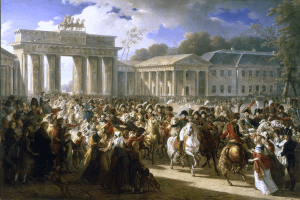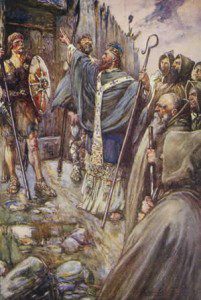I dearly love Mel Brooks as a comedian, but I do have some quarrels with him as a historian. In explaining that remark, I’ll return to the point I made recently about teaching European history to Americans, and some of the basic and quite counter-intuitive ideas you need to get across at a very early stage. In the 1983 film To Be Or Not To Be, Mel Brooks plays a Polish vaudeville star in the months leading up to the... Read more

















